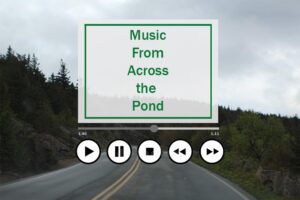On Tuesday, April 9, Israel will hold its national elections to the Knesset, which is Israel’s system of government. This date is something we’ve all had hammered into our heads since the day we arrived in Tel Aviv, but there has been a lot to learn about it between then and now.
The Knesset is different than the United States government in many ways, but perhaps the main difference is that rather than consisting, for the most part, of two parties, it consists of a handful of parties, each of which receive a percentage of seats in the Knesset. The main governing party in the country is the party that has the largest percentage of seats, determined by the percentage of the votes. So prior to the election, the “Likud” party had 23 percent of the Knesset, which added up to 30 out of the 120 total seats.
Once a new Knesset is elected, the prime minister of the country is chosen from among this new group of members. So come election time, rather than voting for a candidate, Israelis vote for a party, without knowing which individual will end up leading the country once the election is through. However, each party has a public leader of the party, and typically the new prime minister — elected by the new members of the Knesset — will be the leader of whatever party receives the most seats.
Another major difference, and a very interesting one, is that the lifespan of a Knesset is very inconsistent. What I mean by this is that although according to Israeli law, the term limit of a Knesset is four years, it rarely makes it this far. On average, the lifespan is 3.5 years before the Knesset disperses and early elections take place, and this can happen for a handful of reasons, such as the Knesset failing to approve a budget after a certain amount of time, or the prime minister simply asking the Knesset to disperse.
Overall, the process is fascinating in how much it differs from the government in the United States. However, something I personally think the U.S. could adopt is that in Israel, election day is a national holiday, enabling everybody to get out and vote. In fact, soldiers on active duty have polling stations in their units, and arrangements are made for patients in the hospital to vote as well as prison inmates. But on the other hand, Israel doesn’t provide for absentee ballots, so access to the polls on election day is key. Clearly, they’re doing something right, though; the voter turnout for the last elections in 2015 was 72.36 percent.
In terms of the parties that are running and what exactly their ideologies are, I wish I knew a lot more than I do. Hopefully, after Tuesday, I’ll be able to get a little more of an idea of where Israel will be heading politically in the near future.
On another note, I spent this past weekend on a school trip to the north of Israel. We visited the ancient crusader city of Akko, which was built around the 1200s and is still miraculously intact. We also visited the border of Israel and Lebanon, specifically the caves (or “grottoes”) called Rosh HaNikra. These grottoes are located on a cliff face right on the coastal border of the two countries and are full of fish, birds and bats. The water flowing through them comes from the Mediterranean Sea and is a gorgeous bright blue, making for an interestingly tropical kind of cave-walk through the site. But perhaps the most interesting part of visiting sites such as Akko and Rosh HaNikra is the connections I can now begin to make between these sites, their history and what I’m learning in my classes at Tel Aviv University about Israel and its history and politics.
After this week, we will enter our next break from school for Passover. On April 19, Passover begins and I will be attending a Passover Seder here in Israel, which I will explain the significance of (both the holiday and the Seder) in my next article. Spoiler alert: I can’t eat bread (or anything with yeast in it) for a week!
Elections in Israel
More from Black Bear AbroadMore posts in Black Bear Abroad »
More from CultureMore posts in Culture »







